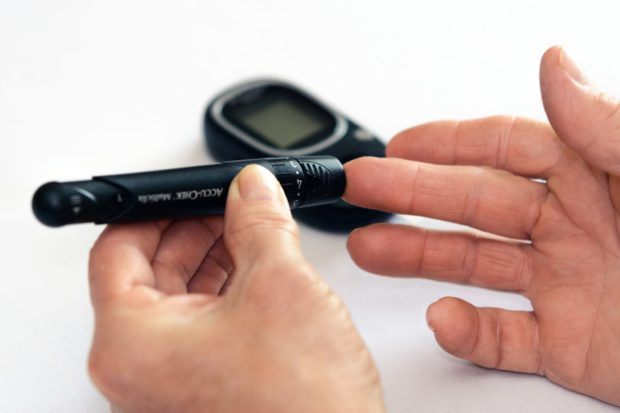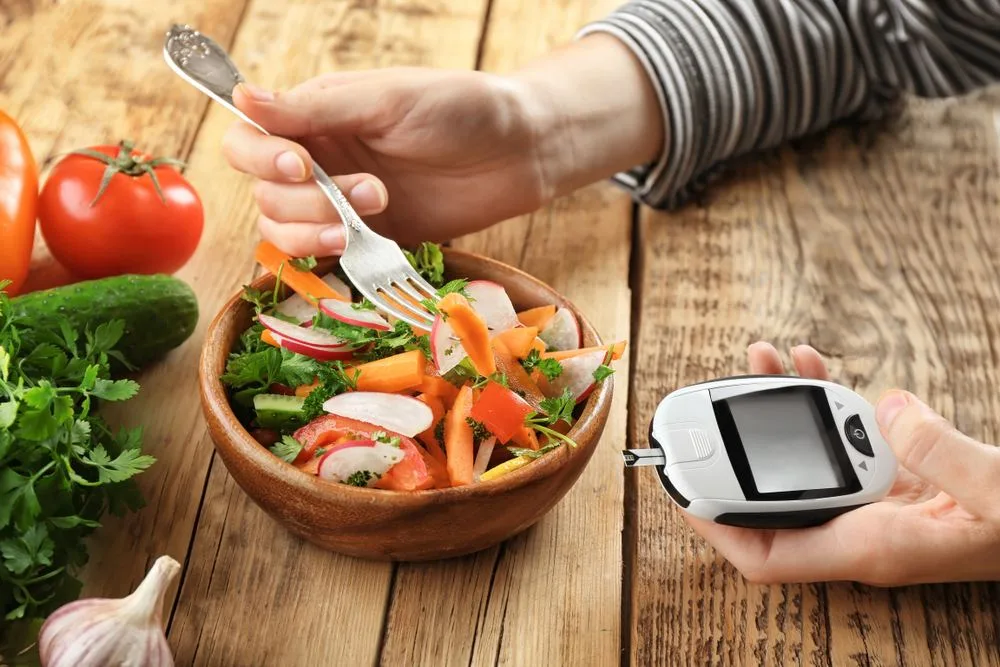According to the International Diabetes Federation, around 537 million adults around the world are living with diabetes. In South Africa, the number is over 4.2 million adults, of which an estimated 45.4% of people are undiagnosed, South Africa has the highest prevalence of diabetes in Africa at 11.3% of our population. To make matters worse, it is estimated that an additional 13 million South Africans, that’s one in three adults, have impaired fasting glucose (IFG) which puts them at high risk of developing Type 2 diabetes. This is the highest prevalence of IFG in the world.
Diabetes Is Costing Us
It is estimated that around 96 000 South Africans died of diabetes-related causes last year. The suffering and loss that patients and their families endure are incalculable, while in 2018, the country’s healthcare costs for diabetes were approximately R21.8 billion. The tragedy is that it doesn’t have to be this way. While the condition cannot be cured at this time, it can be effectively managed through treatment and lifestyle habits so that people living with diabetes can avoid diabetes-related health complications and live long healthy, and fulfilling lives.

For Diabetes Awareness Month, registered dietitians and ASDA (Association for Dietetics in South Africa) spokespersons Ria Catsicas, Nasreen Jaffer, and Kgadi Moabelo bust 10 myths about diabetes and food so that those living with the condition can make healthier nutritional choices.
Busting Diabetes Food Myths
1. Do people with diabetes need to eat special foods formulated for them or follow a special diet?
According to Ria Catsicas, people with diabetes need to prioritize the intake of foods that are part of a healthy diet. She adds that there is no need to buy special foods or expensive foods, as foods that form part of a healthy diet are available at any grocery store. As for which foods are these? They include whole grains; fresh vegetables and fruits; dried beans, legumes, and pulses; fish, chicken, lean red meat; low-fat dairy products; seeds and nuts; and plant-based oils such as olive, canola, sunflower, and other seed or nut oils.
By looking at the foods recommended, it’s clear that people living with diabetes have as wide a choice of foods as anyone else. For Catsicas, the challenge is less about knowing what to eat and more about changing eating habits. As such, Catsicas says that people diagnosed with diabetes or as pre-diabetic will benefit from seeking guidance from a registered dietitian,
“Each person requires individual dietary guidance, with consideration of several factors, including your health status, medication, lifestyle and food preferences. Having a dietitian on your team gives you the support that everyone needs when they need to change their habits.“
2. Do people with diabetes have to avoid eating fruits?
No, according to Ria Catsicas, people with diabetes do not have to avoid fruit. However, they do have to be cautious.
All types of fruit contain fibre and have a low glycaemic load, a term that refers to the type and quantity of carbohydrate that is eaten. As such, a low glycaemic load means that if you eat any fruit in moderation you will not experience a high blood sugar response. Therefore, it is the amount of fruit you eat that matters so Catsicas advises that you get your dietitian to check how much fruit you can consume as this is an individual recommendation.
3. Is it true that if you have diabetes, carbohydrates are ‘the enemy’?
No, says Ria Catsicas, carbohydrates are not ‘the enemy’ for people with diabetes. Yes, carbohydrates are the foods that affect blood sugar most significantly, however robust evidence has shown that starchy foods do not have to be avoided in order to attain blood sugar control. Rather, the type and quantity of carbohydrates consumed affect blood sugar levels.

nito/shutterstock
Catsicas points out that refined, ultra-processed carbohydrates should be avoided, including ;
- white and brown breads
- white maize meal and rice
- fast foods such as slap chips, pizzas, vetkoek, bunny chows
- baked goods such as pies, pastries, cakes, and biscuits
- high sugar foods such as ice cream, sweets, and chocolates; sugary drinks including fizzy drinks, fruit juices, ice teas, and cordials
- refined and sugary breakfast cereals
- snack foods such as white rice cakes, crackers, and potato chips
Now, this may seem like a long and depressing list but there are a lot of tasty, high-fiber carbohydrate foods that should be included. These include:
- dense seed and health breads
- unsweetened, high-fibre breakfast cereals
- rolled oats
- wild brown rice
- baby potatoes and sweet potatoes with skins on
- legumes such as beans, lentils, and chickpeas
- corn on the cob
- grains such as barley, quinoa, and bulgur wheat
- high fiber crackers
- all fresh fruit and vegetables.
When it comes to quantity, a dietitian can help you determine the optimal portions of carbohydrates for you based on your weight, age, gender, activity level, levels of blood sugar control, and types of medication you use.
4. Some people think that a diabetes diagnosis means they can never eat sweets, chocolates, or desserts ever again. What should a person with diabetes do to satisfy their sweet tooth?
According to Registered Dietitian Nasreen Jaffer, this is false. It is not true that a person living with diabetes can never enjoy a sweet treat ever again. Rather, what we should focus on is how much and how often these foods are eaten and making sure that there’s a balance of the food groups in a meal or snack.
Jaffer shares that dietitians can help people with diabetes identify healthier alternatives that may well become favorite go-to treats.
5. Is it true that Type 2 diabetes is a mild form of diabetes?
Ria Catsicas says that Type 1 is a worse type of diabetes than Type 2 and that the differences between the types of diabetes are how they develop.
Type 1 diabetes normally develops in people of a younger age in a short space of time due to an autoimmune disorder. Also, people living with Type 1 diabetes are 100% dependent on injecting insulin. Type 2, on the other hand, develops in older people over a longer period of time due to a number of factors that include genetic predisposition, abdominal obesity, poor diet, inactivity, and stress. In this case, insulin resistance and fatty infiltration of the pancreas cause the pancreas to produce too little insulin to control blood sugar levels within the normal range.
 Some people with Type 2 diabetes also use insulin while others use alternative medicine. Both types are treated using a variety of medications including injections to control blood sugar levels most optimally.
Some people with Type 2 diabetes also use insulin while others use alternative medicine. Both types are treated using a variety of medications including injections to control blood sugar levels most optimally.
Catsicas concludes that the worst type of diabetes is diabetes, which is untested, undiagnosed, or uncontrolled because this leads to dramatic health complications including blindness, loss of limbs, and death.
6. Does Type 2 diabetes only affect overweight people?
Diabetes is not weight-restrictive as Type 2 diabetes does not only affect overweight people. However, says Nasreen Jaffer, being overweight and obese are the major risk factors for developing Type 2 diabetes because they lead to insulin resistance. Therefore, Jaffer recommends maintaining a healthy weight can prevent the onset of diabetes, and is an important cornerstone of managing diabetes.
7. Are all people with diabetes at risk of losing their legs, or of going blind?
While diabetes does have its complications, Nasreen Jaffer says that not everyone with diabetes will experience these complications of poorly managed or undiagnosed and unmanaged diabetes.
The risk for complications increases when blood sugar levels are not maintained within the targeted levels over an extended period of time. This is why it is so important to be tested, and if diagnosed, to follow the recommended treatment. The onset of complications can be delayed or avoided by maintaining optimal blood glucose control through medical treatment, diet, and physical activity.
8. Should people with diabetes avoid physical activity?
Physical activity is important for everyone, and people with diabetes should definitely not avoid physical activity, says Registered Dietitian Kgadi Moabelo, that is unless they are specifically advised to do so by their doctors.
For people with diabetes, physical activity offers significant benefits. For one, exercise improves insulin sensitivity and supports the control of blood sugar levels. Moabelo also points out that physical activity helps to control weight. It also protects against nerve damage and can delay the progression of diabetes complications.

Photo by Benjamin Klaver on Unsplash
Each individual living with diabetes should be aware of their unique glucose response to exercise, and tailor their activities accordingly. The general guideline is 150 minutes of moderate-intensity exercise weekly, such as walking, jogging, cycling, and swimming; or 75 minutes of vigorous-intensity activity per week.
9. Are there any natural products that can cure diabetes or support health for people with diabetes?
Kgadi Moabelo says there are no plants or medicines that can cure diabetes. Yes, she admits there are reports that over 800 plant species may have beneficial effects on blood sugar levels. However, there is a significant lack of research that is needed to determine important factors such as safe dosage and administration.
Moabelo also reminds us that “natural” does not mean “safe”. While there may be medicinal plants that can help at the right dose, administered in the right way, the same plants can be toxic at the wrong dose or taken in another form. Therefore, it is important to first discuss any supplementary or alternative treatments you may want to try with your doctor.
10. If a person with diabetes adheres to their medication, can they eat anything they like?
According to Kgadi Moabelo, the need for a person living with diabetes to eat a healthy diet even when their blood sugar level is controlled. Moreover, maintaining healthy body weight is of great importance when managing the condition. Therefore, focusing on high-fiber carbohydrate foods instead of highly refined carbohydrates, plenty of vegetables, low-fat foods and limited salt intake is essential for proper management.
Bottom line
Diabetes is a manageable condition, but only if the appropriate methods are adopted, one of which includes making dietary changes. By combining these changes with medical treatment and physical activity, then one can go on to live a long and healthy life.
References
Erzse, A., Stacey, N., Chola, L., Tugendhaft, A., Freeman, M., & Hofman, K. (2019). The direct medical cost of type 2 diabetes mellitus in South Africa: a cost of illness study. Global health action, 12(1), 1636611. https://doi.org/10.1080/16549716.2019.1636611
Who Are The Experts?
Ria Catsicas
Ria Catsicas RD(SA), BA (Psychology), MSc (Nutrition) is a Clinical Dietitian in private practice with twenty-five years of experience. She is the founding partner of Nutritional Solutions which is one of the leading dietetic practices in South Africa.

Ria Catsicas
Catsicas specializes in the nutritional management of fertility, PCOS, overweight obesity, and Type 2 diabetes. Ria has authored the book The Complete Nutritional Solutions to Diabetes. Ria has presented research papers at the Medical Congresses and writes for medical journals including the SA Journal of Diabetes and SAMJ.

Nasreen Jaffer
She regularly contributes to the promotion of nutrition education. She also gives nutrition a “voice” by doing presentations and talks on radio, TV shows, expos, and conferences.
Nasreen Jaffer
Nasreen Jaffer is a healthcare practitioner. She is specializing as a Dietician in Rondebosch, Cape Town, Western Cape, South Africa.
Kgadi Moabelo
Kgadi Moabelo is currently working at Alta Kloppers and Associates as a Clinical Dietician. She grew up and matriculated in Limpopo, and obtained a BSc (Dietetics) honors degree from the University of Limpopo (Sefako Makgatho Health Science University). She is currently studying Masters in Public Health at the same University.

Kgadi Moabelo
Moabelo did her community service at Kgapane hospital. She has served in the executive management of the same hospital for three years as a quality assurance manager and has discovered great qualities about herself during those years. Kgadi believes that she can do anything that she puts her mind to, whether trained in that particular field or not.
She loves exercising, especially running and cycling. Kgadi also enjoys educating the public about nutrition. She believes that when people are well-informed, they will make positive health decisions.





![women [longevity live]](https://longevitylive.com/wp-content/uploads/2020/01/photo-of-women-walking-down-the-street-1116984-100x100.jpg)









